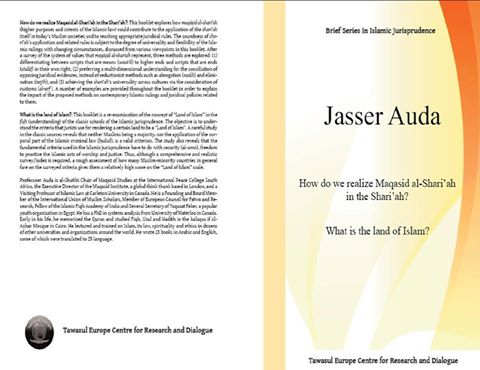[button link=”http://drjasser6430635611350.cloud.bunnyroute.com/wp-content/uploads/2016/12/4.pdf” newwindow=”yes”] read[/button]
This booklet explores how maqāṣid al-sharī˒ah (higher purposes and intents of the Islamic law) could contribute to the application of the sharī˒ah itself in today’s Muslim societies and to reaching appropriate juridical rules. The soundness of sharī˒ah’s application and related rules is subject to the degree of universality and flexibility of the Islamic rulings with changing circumstances, discussed from various viewpoints in this booklet. After a survey of the system of values that maqāṣid al-shariah represent, three methods are explored:
(1) differentiating between scripts that are means (wasā˓il) to higher ends and scripts that are ends (ahdāf) in their own right, (2) preferring a multi-dimensional understanding for the conciliation of opposing juridical evidences, instead of reductionist methods such as abrogation (naskh) and elimination (tarjīh), and (3) achieving the sharī˒ah’s universality across cultures via the consideration of customs (al-˒urf ). A number of examples are provided throughout, in order to explain the impact of the proposed methods on contemporary Islamic rulings and policies related to them.


